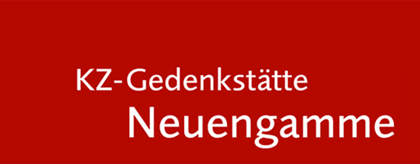
Further Education Courses and Seminars
The Neuengamme Concentration Camp Memorial regularly offers further education courses and seminars for teachers, study seminars and multipliers from all areas of society. Openly advertised seminars and further education courses are aimed at individuals with an interest in the subject matter. These offers provide the opportunity to reflect on relevant questions pertaining to past and present, with a diverse group of people. Some of these events are organised in co-operation with university and non-university institutions, especially with institutions for teacher training and further education as well as historical-political education. Information on current further education courses and seminars can be found under the rubric What’s On. Seminars and exchanges aimed specifically at descendants of victims of Nazi persecution and Nazi perpetrators can be found under the Encounters projects.
You also have the option of booking your own further education courses as a specialist body, student seminar or interested group. The duration of the further education courses depends on how in-depth the subject matter is and the chosen topic (from one-day projects to events lasting several days). Further education courses are available on the following topics, among others:
Getting to Know the Memorial and the formats available for booking
This further education course takes a closer look at the Memorial as well as the bookable educational formats on offer from the Memorial. Suitable for study seminars, groups of teachers and professional associations.
Teaching the Holocaust and Shoah
Topics such as the Holocaust and Nazi crimes often evoke strong emotions among educators. By contrast, school pupils often regard National Socialism as history now long past. How do we address this contradiction while rekindling interest? How do we use age-appropriate media in the classroom, and what opportunities do extracurricular learning centres have to offer?
The Holocaust in film
This further education course looks at the way concentration camps and ghettos are portrayed in feature films and documentaries. We also consider which films are suitable as classroom preparation for a visit to a memorial site. Other issues raised include discussing the depiction of persecutees and perpetrators in films and whether it is possible to adopt a comedic approach to the Shoah. Participants are able to reflect on viewing habits through various examples of films and find out more about production backgrounds and how imagery, legends and myths are created.
Auschwitz in comic form?
Children’s and youth literature is very well suited to conveying the complexity of the National Socialist era to young people and encouraging them to reflect on it. This further education course presents new publications and discusses ways of applying them to a classroom setting; they include novels, graphic novels and comics about the Sinti and Roma, Jewish persecutees, and other groups of victims of Nazi persecution.

